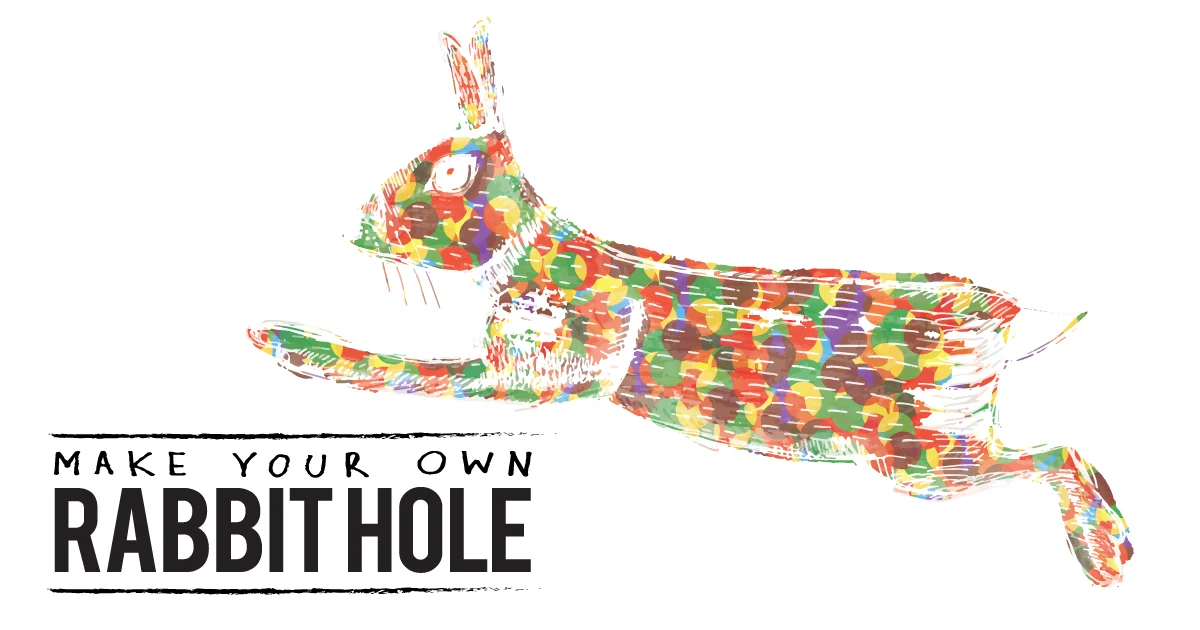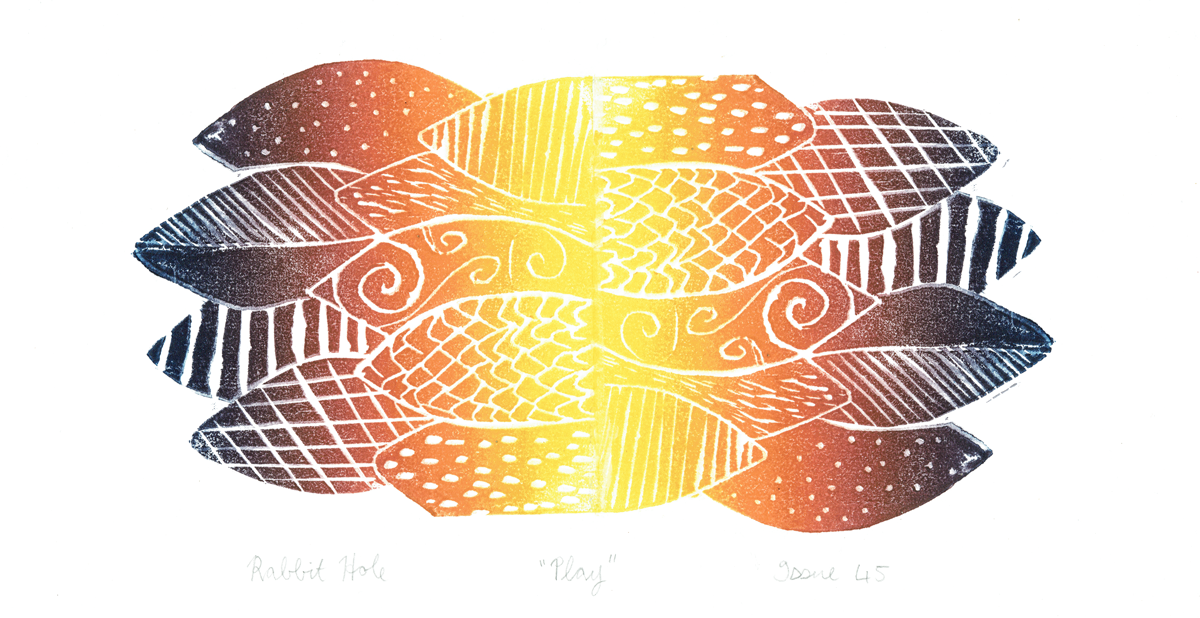Remembering How to Play
/If I was going to pick one thing that holds me back creatively, it's this—I've forgotten how to play.
It's the start of a new semester and I'm back teaching. I like teaching. I like talking to students about their work because I'm still trying to figure things out too.
I teach writing and research skills, and this week I started my workshop with a story I heard on a podcast the night before, about a nineteenth-century chemist and amateur meteorologist, Luke Howard.
Howard was a member of the Askesian Society—a club in London where learned gentlemen discussed the great scientific theories and discoveries of the day. But if you wanted to attend a meeting of the Askesian Society, you had to present a paper, otherwise you had to pay a fine.
One night, Howard really wanted to go, but didn't have anything to present. He certainly didn't want to pay the fine, so he made something up. Since classifying things was all the rage in nineteenth-century England, he half-jokingly presented a paper on the classification of clouds. He identified three main types and gave them Latin names to make them sound scientific: stratus, the low-lying cloud cover you see on grey drizzly days; cumulus, the big fluffy white ones that look good enough to sleep on; and cirrus, the feathery whisps of broken-off fairy floss you sometimes see floating high on clear days.
Up until then, scientists, seamen and anyone else interested in the weather had only talked about clouds in poetic terms. (Yes, I said seamen. Grow up.) Howard's paper, which again was partly tongue in cheek, was a huge success and prompted a whole new branch of science. The following year he published a paper on the topic, and now Howard is considered the 'father' of modern meteorology.
Outside the house where he once lived there is a blue and gold plaque that reads:
LUKE HOWARD (1772-1864) Namer of Clouds lived and died here
I started my workshop with this story for three reasons. One: I like stories and most other people I know like hearing stories too. Two: more often than not, most great advances in human knowledge, culture and society are not due an individual's greatness but more likely to be due to chance, happy hapless accidents, and good fortune. And three: I told the story because if my second point is true, we should spend less time trying to be great and more time mucking around, trying things out and creating the best conditions for those happy accidents to occur.
'Your hands are like dogs'
I realise now that being creative is all about play. Play should always be the jumping off point.
Play before product is my new motto.
And when I say play, I mean like we used to play when we were kids. We used to just draw; we used to just sing; and it didn't matter where or when. Like today when my friend's five-year-old daughter—who explained to us in all seriousness that she was basically six because she has another birthday in ten months—spontaneously broke into Bollywood-style jazz ballet dance when talking excitedly about an upcoming plane trip.
Which is not to say we should bust out some moves during the staff meeting tomorrow, or at parent/teacher night. As adults it's not always appropriate to play like children, but it's amazing how many of us won't allow ourselves to play in private, in the secrecy of our own homes, in our fantasies, even in our wildest dreams.
But play rejuvenates. It excites. It defeats everyday dreariness.
Play is when you try stuff out. It's when you put your inhibitions aside. It's throwing things together to see what sticks.
Play doesn't involve knowing how good you are, how old you are—'how' anything. It's just activity for 'who gives a sh*t, that's why!' And even if you are good at something, you still need play, because how else are you going to evolve?
When singer-songwriter-musician Tom Waits was asked in an interview about his creative process and why he plays so many strange and unusual instruments on his albums, he said:
"Your hands are like dogs, going to the same places they’ve been. You have to be careful when playing is no longer in the mind but in the fingers, going to happy places. You have to break them of their habits or you don’t explore; you only play what is confident and pleasing. I’m learning to break those habits by playing instruments I know absolutely nothing about, like a bassoon or a waterphone. [...]
There are no experts or beginners. [...] I love the places in music where you don't bring your ego to the process. You just shake hands with your instrument. Sometimes music will like you better if you are more innocent, it will want to say around longer."
Play is essential for children's development. It's funny how we abandon it once we feel we're 'not allowed' to do it anymore.
Phooey. Play before pressure. Play before performance. Play before 'perfect.'
Play before going public, before panic, before considering the 'proper' way to do things. Before process, profit, paranoia, pedantry and pretension.
Because play is about passion, pleasure and possibility. It's an antidote to procrastination and passivity. Got some project you want to do? F*ck around with it first—don't be precious.
'We write as the birds sing'
And then out of those experiments, then we can choose what to share.
Anaïs Nin wrote, and I know it's a long quote, but stick with me—it's worth it:
The artist is the only one who knows that the world is a subjective creation, that there is a choice to be made, a selection of elements. It is a materialisation, an incarnation of his inner world. Then he hopes to attract others into it. He hopes to impose his particular vision and share it with others. And when the second stage is not reached, the brave artist continues nevertheless. The few moments of communion with the world are worth the pain, for it is a world for others, an inheritance for others, a gift to others, in the end. When you make a world tolerable for yourself, you make a world tolerable for others.
We also write to heighten our own awareness of life. We write to lure and enchant and console others. We write to serenade our lovers. We write to taste life twice, in the moment, and in retrospection. We write, like Proust, to render all of it eternal, and to persuade ourselves that it is eternal. We write to be able to transcend our life, to reach beyond it. We write to teach ourselves to speak with others, to record the journey into the labyrinth. We write to expand our world when we feel strangled, or constricted, or lonely. We write as the birds sing, as the primitives dance their rituals. If you do not breathe through writing, if you do not cry out in writing, or sing in writing, then don't write, because our culture has no use for it.
When I don't write, I feel my world shrinking.
I feel I am in a prison. I feel I lose my fire and my color. It should be a necessity, as the sea needs to heave, and I call it breathing.
Nin's words are so beautiful and so right. We should make things to shake it off, to try it out, to let it go, play and have fun. Just like how Luke Howard—the chemist and amateur meteorologist—became 'namer of clouds' just by mucking around. His world was richer for it, and so is ours. As Kurt Vonnegut said:
"Listen: We are here on Earth to fart around. Don't let anybody tell you any different!"
Rabbit
p.s. After creating a new essay and artwork every week for the past eight months, something really great has happened—I don't feel blocked creatively anymore. In fact, touch wood, I feel really good about doing my own thing and sticking with it, which is why I've decided to take a short break for a month. During my time off, I'm going to experiment and muck around with some new ideas... play.
Next week a special guest will be stepping into my bunny slippers for an exciting new issue! (Kind of like on Saturday Night Live when they have guest hosts. Can't wait!) Oh, and I'll still be sharing my adventures on Facebook, Instagram and Twitter (even though I still don't get what Twitter is all about), so follow, like, post and comment.
Thanks so much for reading!












Painter Tracey Read talks about spending four weeks painting and drawing her way around Italy.